Jordan has been actively promoting sustainable construction and eco-friendly architecture through its top green buildings. The country has made significant efforts to develop green building practices and reduce energy and water demand. In 2009, the Jordan Green Building Council was established with the aim of promoting the adoption of green building practices in Jordan.
The council has developed the Jordan Green Building Guide, which provides a rating system for green buildings in Jordan. This guide offers incentives for owners and developers to embrace green building practices, such as an increase in the Floor Area Ratio (FAR). The Greater Amman Municipality manages registered green buildings, ensuring compliance with the guide’s requirements and promoting eco-friendly practices.
- Sustainable construction and eco-friendly architecture are actively promoted in Jordan.
- The Jordan Green Building Council plays a crucial role in advancing green building practices.
- The Jordan Green Building Guide provides a rating system for green buildings.
- The Greater Amman Municipality oversees registered green buildings and ensures compliance with eco-friendly standards.
- Incentives, such as an increase in the Floor Area Ratio, encourage the adoption of green building practices.
LEED Certified Buildings in Jordan
Jordan’s commitment to sustainable construction is evident in its growing number of LEED certified buildings, which feature energy-efficient structures and environmentally friendly designs. These buildings are built with green building materials that reduce environmental impact while promoting energy conservation.
One notable example is the King Hussein Business Park in Amman, which achieved LEED Gold certification. The park incorporates sustainable features such as efficient water management systems, renewable energy sources, and high-performance insulation. Its design maximizes natural light and ventilation, reducing the need for artificial lighting and air conditioning.
Another LEED certified building in Jordan is the Abdali Mall in Amman, a premier shopping destination recognized for its sustainable design. This building showcases green building practices through its use of recycled materials, energy-efficient lighting, and advanced HVAC systems. The mall’s commitment to environmental sustainability extends beyond its construction to include ongoing energy monitoring and optimization.
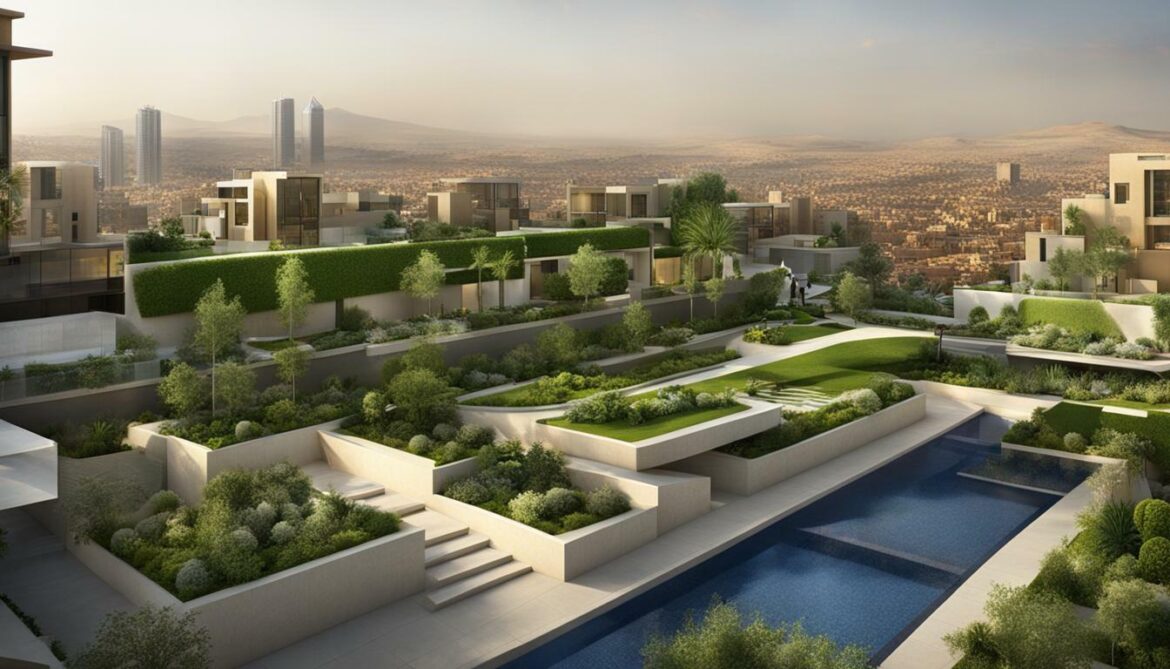
| Building |
Location |
Certification Level |
| King Hussein Business Park |
Amman |
LEED Gold |
| Abdali Mall |
Amman |
LEED Platinum |
These LEED certified buildings not only contribute to reducing carbon emissions but also serve as role models for sustainable development in Jordan. As the country continues to prioritize green building practices, the construction industry is expected to embrace sustainable design and construction techniques, further enhancing Jordan’s reputation as a leader in environmentally conscious architecture.
Green Building Practices in Jordan
In Jordan, green building practices encompass a range of sustainable techniques and materials, resulting in carbon-neutral construction and energy-efficient structures. The country has embraced eco-friendly architecture and sustainable construction methods to reduce its environmental impact. One of the key factors driving these practices is the need to address the growing demand for energy and water resources. By employing sustainable building techniques, Jordan aims to minimize energy consumption, conserve water, and promote a healthier living environment for its residents.
One of the significant initiatives in Jordan is the use of renewable energy sources. Solar panels are commonly installed on rooftops to harness the abundant sunlight and generate clean energy for the buildings. In addition, efficient water management systems, including rainwater harvesting and greywater recycling, are widely implemented to reduce water waste. These practices not only contribute to the conservation of natural resources but also help in creating a more sustainable and self-sufficient built environment.
The integration of sustainable building materials is another crucial aspect of green building practices in Jordan. Building materials with low embodied energy, such as locally sourced stone, adobe, and rammed earth, are preferred to reduce the carbon footprint. Furthermore, the use of environmentally friendly insulation materials like cellulose and sheep’s wool helps in achieving optimum thermal performance while minimizing the energy required for heating and cooling.
By adopting these green building practices, Jordan is making strides towards a more sustainable future. The commitment to carbon-neutral construction and energy-efficient structures not only benefits the environment but also contributes to improved living conditions and energy savings for the building occupants. With continued efforts and support from organizations like the Jordan Green Building Council, the development of green buildings in Jordan is expected to grow, making a positive impact on the environment and the society as a whole.
Key Green Building Techniques in Jordan
At a glance, here are some key green building techniques employed in Jordan:
| Technique |
Benefits |
| Solar panels and renewable energy systems |
Reduced energy consumption and carbon emissions through clean power generation |
| Efficient water management systems |
Conservation of water resources through rainwater harvesting and greywater recycling |
| Use of sustainable building materials |
Lower embodied energy and reduced carbon footprint |
| Integration of eco-friendly insulation materials |
Improved thermal performance and energy efficiency for heating and cooling |
These techniques, combined with the implementation of building codes and guidelines, are transforming the construction industry in Jordan into a more sustainable and environmentally conscious sector.
Jordan Green Building Guide and Codes
The Jordan Green Building Guide, along with building codes like the thermal insulation code and energy-saving building code, play a crucial role in promoting sustainable construction practices in Jordan. The guide, developed by the Jordan Green Building Council, provides a comprehensive rating system for green buildings in the country. It offers incentives for owners and developers to adopt eco-friendly practices, such as an increase in the Floor Area Ratio (FAR). By following the guide’s requirements, buildings can achieve different levels of certification, showcasing their commitment to sustainability.
One of the key building codes in Jordan is the Thermal Insulation Code, which focuses on reducing heat transfer in buildings and improving energy efficiency. It sets mandatory requirements for thermal transmittance (U-value) in walls, ensuring proper insulation and reducing energy demand for heating and cooling. The code aims to create comfortable indoor environments while minimizing energy consumption, contributing to a greener built environment.
An additional code that supports energy efficiency in Jordan is the Energy Saving Building Code. This code establishes mandatory requirements for various aspects of building design, including lighting, ventilation, and renewable energy integration. By incorporating these requirements into their projects, architects and developers can contribute to reducing carbon emissions and creating greener buildings.
The Jordan Green Building Guide and building codes are part of the country’s commitment to sustainable construction. By promoting practices that focus on energy efficiency, water conservation, and the use of renewable materials, Jordan aims to create a built environment that is environmentally friendly and socially responsible. These initiatives pave the way for a future where green buildings are the norm, leading to a more sustainable and resilient society.
| Jordan Green Building Guide and Codes |
Key Features |
| Jordan Green Building Guide |
Provides a rating system for green buildings |
| Thermal Insulation Code |
Sets mandatory requirements for thermal transmittance in walls |
| Energy Saving Building Code |
Establishes mandatory requirements for energy-efficient design |
Conclusion
Jordan’s commitment to sustainable construction, as exemplified by its top green buildings, highlights the country’s dedication to eco-friendly design and green building practices. The efforts made by the Jordan Green Building Council and the establishment of the Jordan Green Building Guide have played a significant role in promoting sustainable construction in the country.
The Jordan Green Building Council, established in 2009, has developed the Jordan Green Building Guide, which serves as a rating system for green buildings in Jordan. This guide not only encourages the adoption of green building practices but also offers incentives for owners and developers, such as an increase in the Floor Area Ratio (FAR), to promote eco-friendly architecture.
The Greater Amman Municipality oversees the management of registered green buildings and ensures compliance with the requirements set by the Jordan Green Building Guide. This ensures that sustainable building practices are implemented and maintained, further contributing to Jordan’s efforts in reducing energy and water demand.
In addition to the Jordan Green Building Guide, Jordan has also implemented building codes related to energy efficiency, such as the Thermal Insulation Code and the Energy Saving Building Code. These codes set mandatory requirements for thermal transmittance (U-value) in walls, emphasizing the importance of energy conservation in sustainable construction.
With the continued development of green buildings in Jordan, the country’s commitment to sustainable construction is expected to grow further. By prioritizing eco-friendly design, implementing green building practices, and adhering to energy efficiency codes, Jordan is paving the way for a greener and more sustainable future for its built environment.
FAQ
What is the Jordan Green Building Council?
The Jordan Green Building Council was established in 2009 and aims to promote the adoption of green building practices in Jordan.
What is the Jordan Green Building Guide?
The Jordan Green Building Guide is a rating system for green buildings in Jordan, developed by the Jordan Green Building Council. It offers incentives for owners and developers to adopt green building practices, such as an increase in the Floor Area Ratio (FAR).
Who manages the registered green buildings in Jordan?
The Greater Amman Municipality is responsible for managing the registered green buildings in Jordan and ensuring compliance with the requirements outlined in the Jordan Green Building Guide.
Are there building codes related to energy efficiency in Jordan?
Yes, Jordan has building codes such as the Thermal Insulation Code and the Energy Saving Building Code. These codes have mandatory requirements for thermal transmittance (U-value) in walls, contributing to energy efficiency in buildings.
What is the future outlook for green buildings in Jordan?
The development of green buildings in Jordan is expected to continue to grow in the future, as the country makes efforts to reduce energy and water demand and promote sustainable construction practices.
Source Links



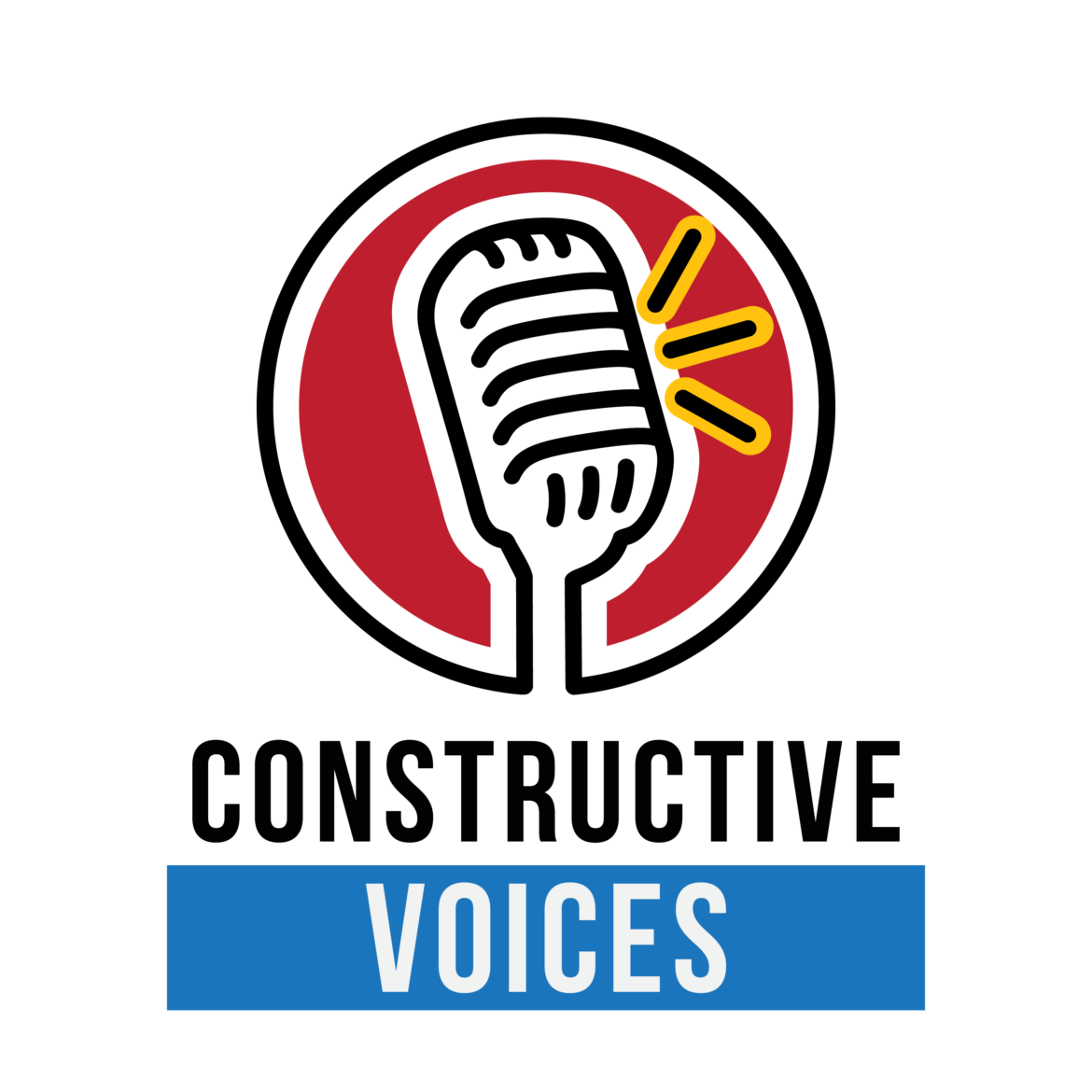


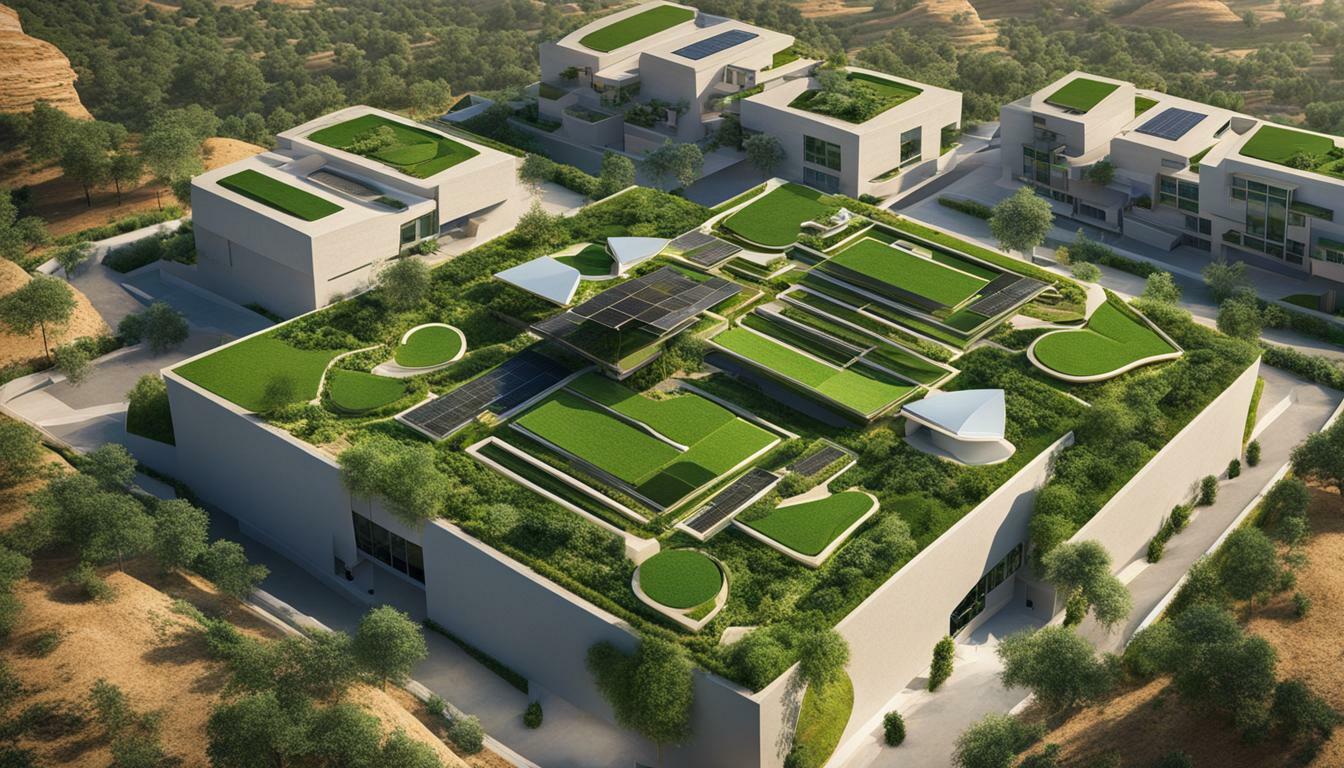

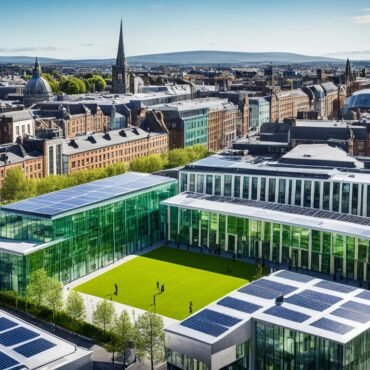
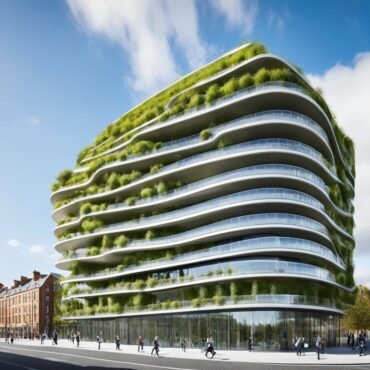




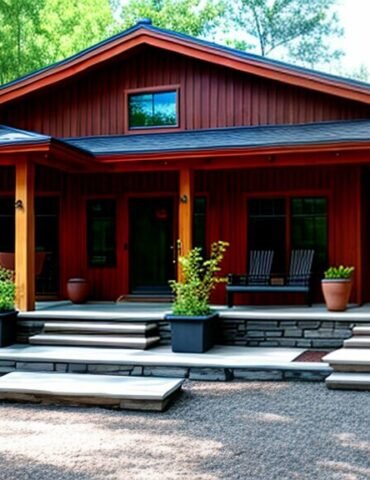

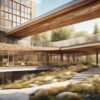
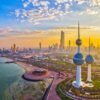

Post comments (0)